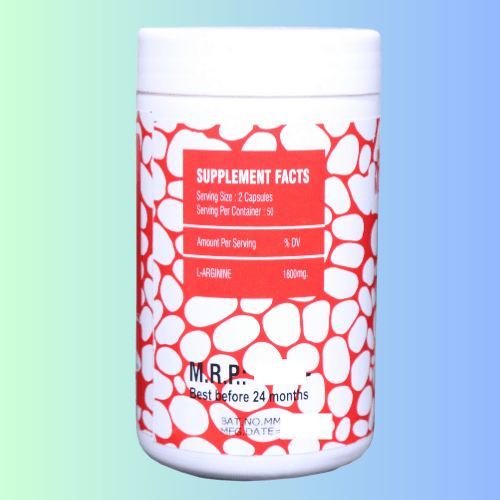Description
L-Arginine is an amino acid, which is a building block of proteins. It’s considered a semi-essential amino acid because although the body can produce it, there are certain conditions where the body may not produce enough, making it necessary to obtain from the diet.
L-Arginine plays several important roles in the body:
- Nitric Oxide Production: One of the primary functions of L-Arginine is its role in the production of nitric oxide (NO). Nitric oxide is a molecule that helps dilate blood vessels, leading to improved blood flow. This can have various benefits for cardiovascular health, including regulating blood pressure.
- Wound Healing: L-Arginine is involved in the process of wound healing. It contributes to cell division and the formation of collagen, which is essential for repairing tissues.
- Immune Function: L-Arginine is important for the proper functioning of the immune system. It helps support the activity of immune cells and plays a role in the defense against infections.
- Hormone Regulation: L-Arginine is involved in the production of certain hormones, including insulin and growth hormone.
- Kidney Function: L-Arginine can have a positive impact on kidney function by helping to regulate blood flow to the kidneys and promoting the removal of waste products from the body.
- Athletic Performance: Some athletes and bodybuilders use L-Arginine supplements with the belief that it could enhance exercise performance and muscle growth due to its role in promoting blood flow and nutrient delivery to muscles.
L-Arginine can be obtained from dietary sources, as mentioned in the previous response, or through supplements. However, using supplements should be done with caution and under the guidance of a healthcare professional, especially if you have underlying health conditions or are taking medications.






 OFFER 10% Extra OFF on Website Order
OFFER 10% Extra OFF on Website Order 





